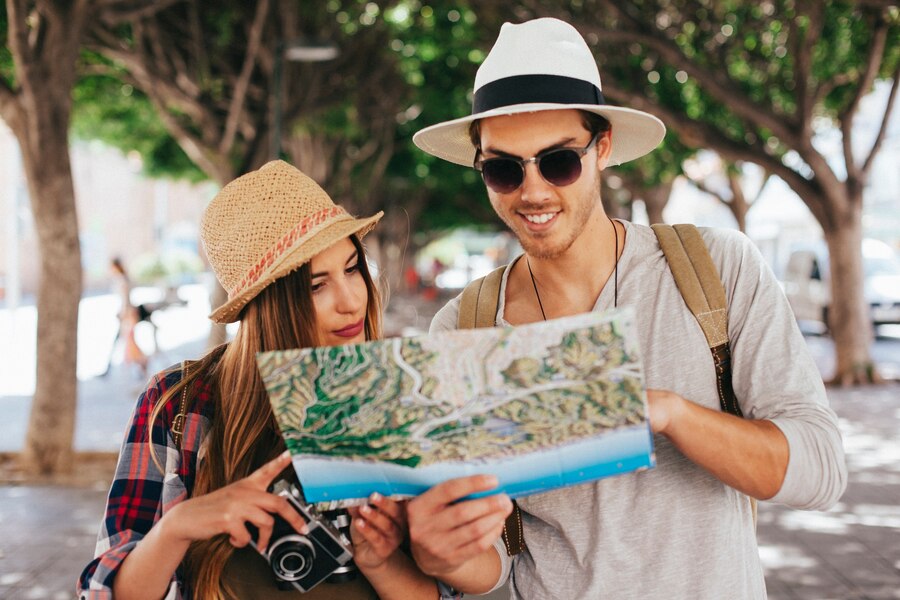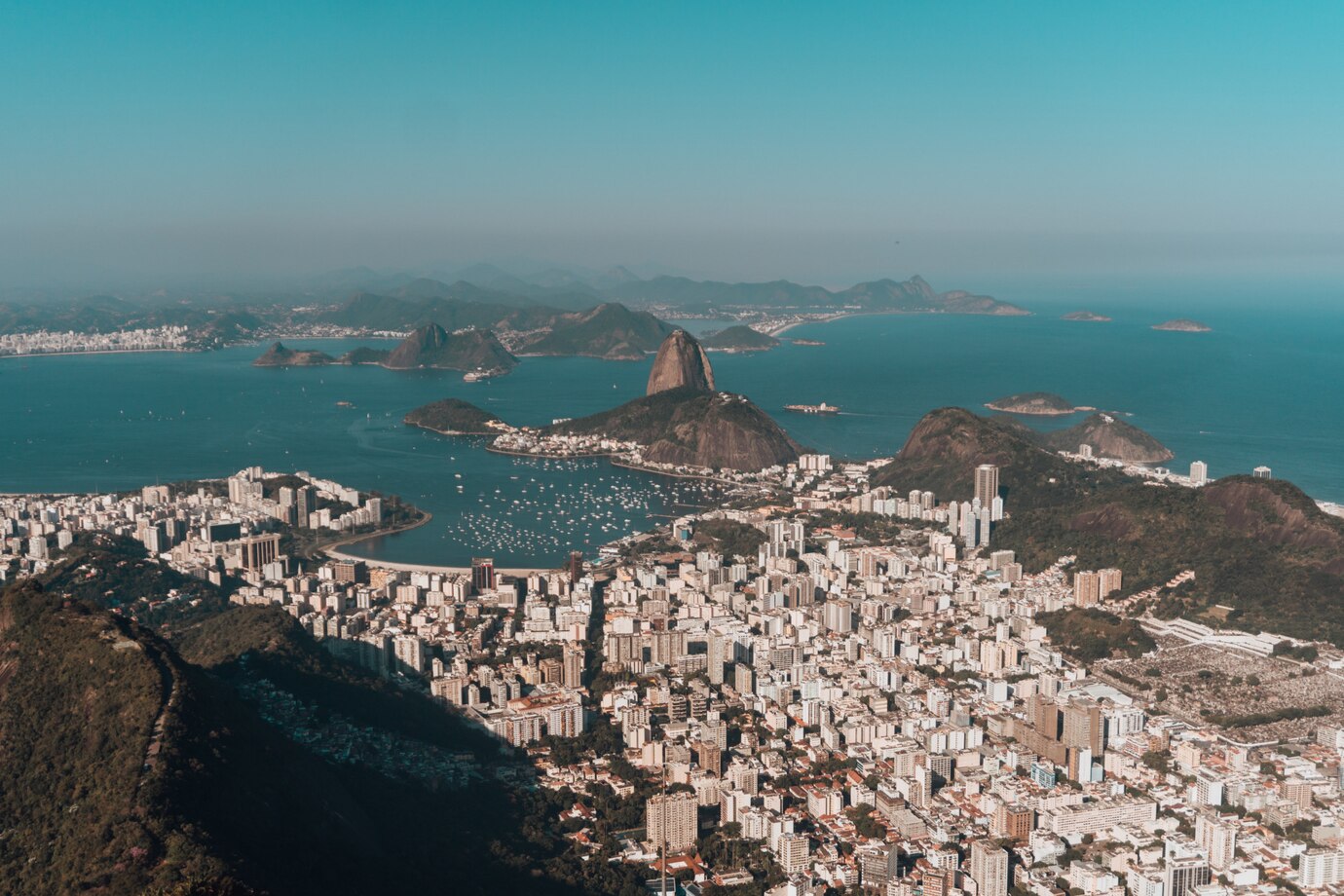If you’re considering a trip to Brazil but are concerned about safety, this comprehensive guide will answer your questions and provide insights to make your journey enjoyable and safe. While crime is something to be mindful of, the good news is that by exercising caution, tourists can usually enjoy a peaceful getaway. Let’s delve into the details and latest travel news about Brazil.
Is Brazil Safe?
Brazil is generally safe for tourists, especially in popular tourist areas. However, it’s essential to stay vigilant, as the country does have a significant wealth gap, which can lead to both petty and serious crimes. Tourists might stand out, so it’s wise to keep your valuables secure and avoid displaying items you can’t afford to lose. Despite these concerns, Brazil has been recognized as South America’s safest country for travelers in 2024, climbing 27 spots to rank 15th globally in terms of travel safety.

Travel Industry of Brazil: A Comprehensive Overview
Brazil’s travel industry is a vibrant and vital sector, significantly contributing to the country’s economy and global cultural exchange. Known for its stunning landscapes, rich cultural heritage, and diverse ecosystems, Brazil attracts millions of tourists annually, making it one of the most popular destinations in South America.
Tourist Attractions and Experiences
Brazil offers a wealth of attractions catering to various interests. Iconic landmarks like the Christ the Redeemer statue in Rio de Janeiro, the breathtaking Iguaçu Falls, the vast Amazon Rainforest, and the pristine beaches of Copacabana and Ipanema are just a few highlights. Cultural festivals, such as the Rio Carnival with its vibrant parades and samba music, draw tourists from around the world. Additionally, Brazil’s unique culinary scene, featuring dishes like feijoada and pão de queijo, offers a gastronomic adventure.
Airline Connectivity
Brazil is well-connected to major cities worldwide, making it easily accessible for international travelers. Major airlines such as LATAM, Gol, and Azul operate numerous domestic and international flights. Below is a table summarizing the key airlines and their direct routes to Brazil from the USA and Europe:
| Airlines | Route |
|---|---|
| From the USA | |
| United Airlines | New York (JFK), Houston (IAH), Chicago (ORD) → São Paulo (GRU), Rio de Janeiro (GIG) |
| American Airlines | Miami (MIA), Dallas (DFW), New York (JFK) → São Paulo, Rio de Janeiro, Manaus |
| Delta Air Lines | Atlanta (ATL) → São Paulo, Rio de Janeiro |
| From Europe | |
| British Airways | London Heathrow (LHR) → São Paulo, Rio de Janeiro |
| Air France | Paris Charles de Gaulle (CDG) → São Paulo, Rio de Janeiro, Fortaleza |
| Lufthansa | Frankfurt (FRA) → São Paulo, Rio de Janeiro |
| TAP Air Portugal | Lisbon (LIS) → São Paulo, Rio de Janeiro, Recife, Salvador |
This robust airline connectivity supports the steady influx of tourists and bolsters Brazil’s travel industry.
Visa-Free Travel
Brazil has made significant strides in easing travel restrictions to attract more visitors. Citizens from several countries, including the USA, Canada, Australia, and Japan, can enter Brazil without a visa for short stays. This visa-free policy enhances Brazil’s appeal as a tourist destination, encouraging more international travelers to explore its wonders.
Safety and Infrastructure
While Brazil offers incredible experiences, safety remains a concern for some tourists. The government and tourism authorities are continually working to improve safety measures and infrastructure. Popular tourist areas have a visible police presence, and special tourist police units assist visitors. Additionally, Brazil’s extensive public transportation network, including buses and metros, provides reliable options for navigating the country.
Safety Measures and Precautions
- International Travel Advisory: Level 2, practice increased caution.
- Crime Rating: 65.09, moderate but approaching high.
- Common Crimes Affecting Tourists: Pickpocketing and purse snatching.
- Public Transportation Safety: Buses and metros are reliable but prone to petty crimes.
- Beach Safety: Be aware of petty crimes.
- Safety Walking Alone During the Day: Moderately safe.
- Safety Walking Alone at Night: Not safe.
- Common Natural Disasters: Floods, landslides, forest fires, earthquakes, and (rare) hurricanes.
- Carbon Monoxide Poisoning: One fatal incident in 2023, a CO detector is advised.
- Police Presence: Officers are more efficient in bigger cities.
- Medical Care Quality: Both public and private hospitals offer good quality healthcare.
- Tap Water: Generally safe to drink, but opt for bottled water just in case.
- Best Time to Visit: From December to March.
Travel Advisory for Brazil
According to the travel advisory from the US, Brazil is rated at a cautious Level 2 safety level, indicating it’s generally safe to visit but with a “High Degree of Caution.” The crime rates are highest in:
- Brasilia
- Porto Alegre
- Recife
- Rio de Janeiro
- Salvador
- São Paulo

Tourists should avoid the following border areas (unless necessary):
- Within 12.43 miles (20 km) of the border with Argentina, excluding Iguaçu National Park.
- Within 12.43 miles (20 km) of the border with Bolivia, excluding Pantanal National Park.
- Within 12.43 miles (20 km) of the border with Colombia.
- Within 12.43 miles (20 km) of the border with French Guiana.
- Within 12.43 miles (20 km) of the border with Guyana.
- Within 12.43 miles (20 km) of the border with Paraguay.
- Within 12.43 miles (20 km) of the border with Peru.
- Within 12.43 miles (20 km) of the border with Suriname.
- Within 31.07 miles (50 km) of the border with Venezuela.
Potential Worst-Case Scenarios
- Thefts at beaches, outdoor markets, hotels, bars, nightclubs, airports, bus stations, and parking lots.
- Petty crime spikes during major events like Carnival and Christmas.
- Thieves target those appearing affluent.
- Armed thieves on motorcycles frequently snatch valuables in São Paulo and Porto Alegre.
- Spiked food and drinks are common on Rio de Janeiro beaches and crowded São Paulo restaurants.
- Criminals in Rio de Janeiro may kidnap victims temporarily to withdraw funds from ATMs.
- Carjackings are frequent at night, in remote areas, and at road intersections.
- Home invasions by armed gangs rise during the December-January holidays.
- Organized crime is prevalent in northern and northeastern regions.
- The “favelas” have the most gang-related violence.
- Credit card and ATM fraud are common.
- Cybercrime, malware attacks, and online dating scams occur frequently.
- LGBTQ+ individuals face violence based on sexual orientation, gender identity, gender expression, or sex characteristics.
- Sports events sometimes lead to violent incidents.
- Demonstrations, even peaceful ones, are unpredictable and can turn chaotic.
- Drivers are often aggressive and reckless, with motorcyclists weaving between lanes.
A Comprehensive Look at Brazil Crime Rates
Brazil’s crime rating is moderate to high, scoring 65.09. According to the 2023 Organized Crime Index, it ranks as the 4th country in South America for organized crime presence. Property crimes in Brazil saw a decline from 2017 to 2020 but spiked again in 2021 and 2022, reaching approximately 348,540 and 386,500 incidents, respectively, up from 332,200 in 2020. In 2022, São Paulo topped the list for car thefts and break-ins, with about 133,590 cases reported, followed by Rio de Janeiro, with 42,062 cases reported. In 2023, seven of the ten cities with the highest violent crime rates were in northeast Brazil. Feira de Santana ranked as the most violent city, followed by Manaus and Salvador. On a positive note, Brazil marked its lowest number of Intentional Lethal Violent Crimes (ILVC) since 2010, with 40,429 incidents recorded—a 4.17% decrease from 2022, saving nearly 2,000 lives.
Safety Concerns and Crime Rate Status
- Overall Crime Level: 75.77, High.
- Crime Increasing in the Past 3 Years: 72.22, High.
- Home Break-Ins and Thefts: 53.32, Moderate.
- Mugging and Robbery: 74.22, High.
- Car Theft: 66.33, High.
- Theft from Vehicles: 68.07, High.
- Personal Attacks: 53.26, Moderate.
- Verbal Insults: 40.66, Moderate.
- Racial, Ethnic, Gender, or Religious-Based Attacks: 25.85, Low.
- Drug Use and Dealing: 69.99, High.
- Property Crimes (Vandalism and Theft): 71.17, High.
- Violent Crimes (Assault and Armed Robbery): 76.47, High.
- Corruption and Bribery: 80.24, Very High.
- Safety Walking Alone in Daylight: 50.58, Moderately Safe.
- Safety Walking Alone at Night: 24.25, Unsafe.
Conclusion: Brazil is a land of breathtaking beauty and cultural richness, offering tourists a myriad of experiences, from the vibrant streets of Rio de Janeiro to the serene landscapes of the Amazon Rainforest. While safety concerns exist, particularly related to crime, these can be mitigated with proper precautions and awareness. Brazil’s commitment to improving tourism safety, combined with visa-free travel policies and extensive airline connectivity, makes it a compelling destination for travelers seeking adventure, culture, and natural wonders. By staying informed and exercising caution, visitors can enjoy a safe and memorable journey through this diverse and captivating country.

Disclaimer
This article is intended for informational purposes only and should not be taken as official travel advice. The safety information provided reflects the situation as of the latest updates but may change over time. Travelers are encouraged to consult official government travel advisories and local authorities for the most current information before planning their trip. The author and publisher are not responsible for any incidents or losses that may occur during travel. Always prioritize personal safety and exercise caution when traveling.
Source: www.travelandtourworld.com
Get Free Expert Advice: Are you ready to embark on your next adventure? Whether you’re seeking a work permit, tourist visa, or study opportunities in Canada or other countries, we’re here to help! Contact us today to learn how our expert services can simplify your journey and turn your dreams into reality. Reach out now and let’s start planning your future together!
- Cost of MBA in Abroad: Detailed Guide for USA, UK, Australia, Europe, China, and Asia
- Discover the Future of European Travel: Schengen Visa Fees to Surge by 12% from June 11
- Study Abroad: What Are the Costs of Pursuing an MBA at Top UK and European Universities?
Also read:
- UK Lottery Visa: Your Ultimate Guide to Winning and Applying
- A Bright Future Awaits Nigeria: Insights from Julie Campbell, UK-based Educationist
- Is Travel to Brazil Safe for Tourists? Visa-Free Travel, Airline Connectivity, Top Tourist Attractions, and Latest Travel News
- Your Ultimate Guide to Applying for a Singapore Tourist Visa
- Luxembourg Work Visa for Indian Citizens: A Comprehensive Guide









